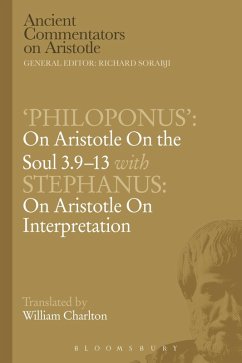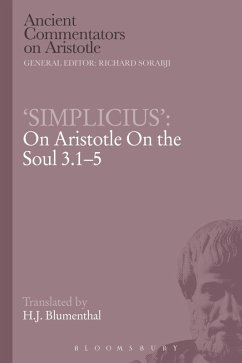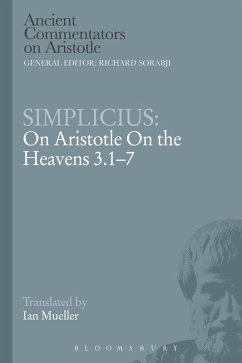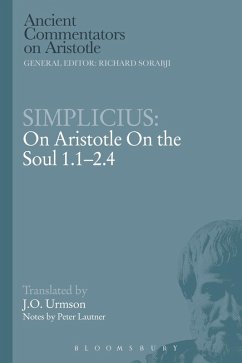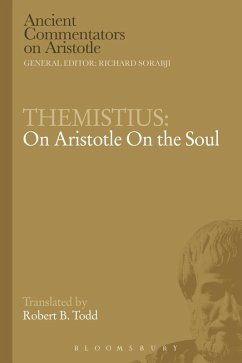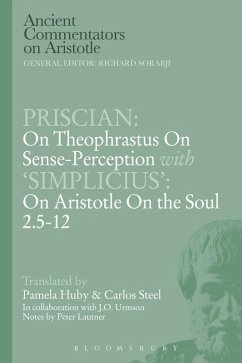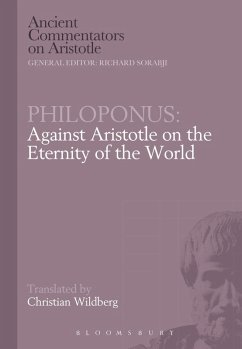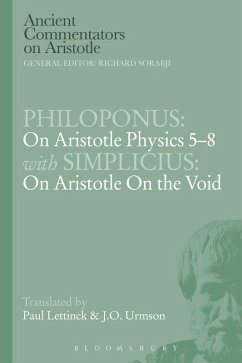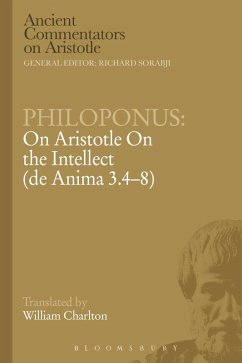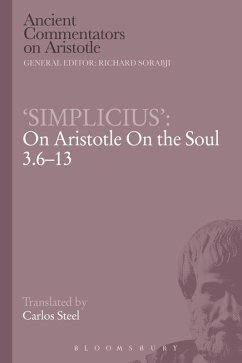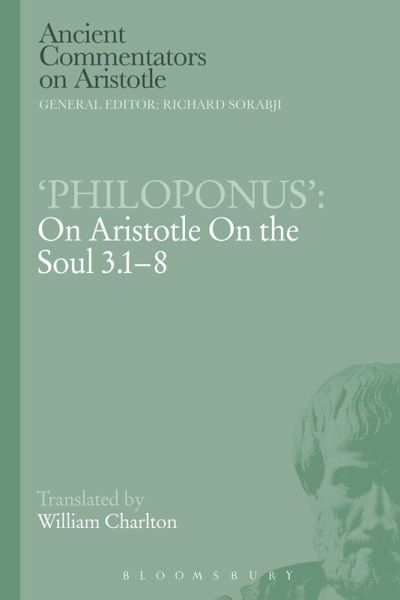
Philoponus': On Aristotle On the Soul 3.1-8 (eBook, PDF)
Versandkostenfrei!
Sofort per Download lieferbar
31,95 €
inkl. MwSt.
Weitere Ausgaben:

PAYBACK Punkte
16 °P sammeln!
In On the Soul 3.1-8, Aristotle first discusses the functions common to all five senses, such as self-awareness, and then moves on to Imagination and Intellect. This commentary on Aristotle's text has traditionally been ascribed to Philoponus, but William Charlton argues here that it should be ascribed to a later commentator, Stephanus. (The quotation marks used around his name indicate this disputed authorship.) 'Philoponus' reports the postulation of a special faculty for self-awareness, intended to preserve the unity of the person. He disagrees with 'Simplicius', the author of another comme...
In On the Soul 3.1-8, Aristotle first discusses the functions common to all five senses, such as self-awareness, and then moves on to Imagination and Intellect. This commentary on Aristotle's text has traditionally been ascribed to Philoponus, but William Charlton argues here that it should be ascribed to a later commentator, Stephanus. (The quotation marks used around his name indicate this disputed authorship.) 'Philoponus' reports the postulation of a special faculty for self-awareness, intended to preserve the unity of the person. He disagrees with 'Simplicius', the author of another commentary on On the Soul (also available in this series), by insisting that Imagination can apprehend things as true or false, and he disagrees with Aristotle by saying that we are not always free to imagine them otherwise than as they are. On Aristotle's Active Intellect. 'Philoponus' surveys different interpretations, but ascribes to Plutarch of Athens, and rejects, the view adopted by the real Philoponus in his commentary on Aristotle's On Intellect that we have innate intellectual knowledge from a previous existence. Instead he takes the view that the Active Intellect enables us to form concepts by abstraction through serving as a model of something already separate from matter. Our commentator further disagrees with the real Philoponus by denying the Idealistic view that Platonic forms are intellects. Charlton sees 'Philoponus' as the excellent teacher and expositor that Stephanus was said to be.




